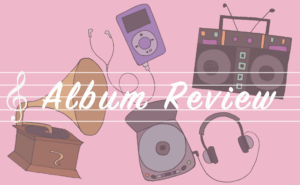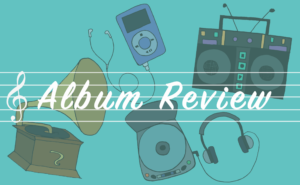Audio mixing is a fairly benign element of a song’s form in contemporary-pop music. While Ed Sheeran may opt for a more open and acoustic recording style than Bruno Mars, both artists want ample space within a song’s mix for the vocal performance to differentiate from the remainder of the track and for the melodic lines to seperate from the rhythm sections. Form informs meaning, and audio mixing seems fairly irrelevant because of a lack of differentiation in style; pop musicians inform the listener that they are making music for easy-listening.
Artists from Broward County, Florida scream in the face of the listener. The Broward County music scene, home to artists like Lil Pump, Ski Mask the Slump God, and XXXtentacion, (and their visionary producers like Ronny J, Smokepurpp, and Rayayy) has a specific sound to it: boosted-bass lines, shouted and slurred vocals, and ultra-loud audio mixing. But this word loud is specific, too—it’s stylistic, not volume. Loudness is a production term that describes a song with low dynamic range, which suggests that each part to a song is similar in volume, generally because each element is as loud as possible. Lil Pump’s “Gucci Gang” is oppressively loud, the bass is boosted, the lyrics are screamed, the trap-cymbals are piercing, even the harp sample is brought to the forefront. There’s a lack of space in the sound between elements to the music. This is stylistic for Pump, the loudness a compliment to the aggressiveness of his vocal performance, and it’s cultural. Pump’s music owes as much to the Broward County sound and community as he does to the present popularity of the distorted sound.
While South Florida has always been a breeding ground for successful rap careers, Broward County has incubated something different from the bombastic, ultra-smooth production of the prototypical Miami rapper (think Flo Rida or Rick Ross). You have to look at SpaceGhostPurpp’s run of mixtapes and albums in the early years of the decade to understand Broward; his music has more in common with Yeezus than Maybach Music. Spaceghost’s music sounds like an awful spotify commercial but it … works? And it kind of sounds good. Every song sounds like it was recorded with two solo cups and some string, and this stupidly aggressive style is so viscous with testosterone and energy it’s difficult not to appreciate the independent artistry of it.
This is the Broward Sound that influenced the hostility of songs like “Look at Me!” or “Life is Short” or “D Rose”. These songs have millions of listens on soundcloud, legions of young fans, and have made an impact on the Billboard charts. While 30-year-olds may scoff in their Tribe Called Quest t-shirts, what these kids from Broward have been doing since 2011 has challenged what rap means, stripping songs back to their rawest elements, and serving 2-minute-trips with no gristle.
“Gucci Gang” only has one verse. Lil Pump literally says Gucci Gang 54 times, but it was the third most popular song in the country. My aunt was listening to Pump during Christmas and my cousins weren’t the ones to clue her in, the internet was. They live in central Washington State people, I know that’s kind of an unknown for most of you Georgetown students but it’s about as far from society you can get—we’re talking an even tumbleweed to cowboy ratio in their hometown.
Anyways, apologies for the tangent, but people are listening to a 5-foot-7, 17-year-old from the suburbs making music not truly different, and generally worse, from his contemporaries or influences, which is weird. Lil Pump was the eye of the perfect storm that touched-down in Broward last fall. Really, there were two factors which primed the American-rap consumer for this:the first more obvious, the second less so.
Okay. It’s really obvious. We are in a post-“Bad and Boujee” world, trap music is mainstream. Reminder that the same country that elected a bigot also made Migos, a trio of black men, the most listened to musicians in America, so we seem comfortable with the cognitive dissonance that may come with popularizing (fetishizing?) people of color like Lil Pump in this America (although Trump didn’t win the popular vote, so I guess that might reconcile that [just kidding, it’s still weird when GU Dems blast “Gold Digger” and side-eye each other when they can’t say certain words]). Regardless, a post-“Bad and Boujee” world wouldn’t inherently facilitate Lil Pump’s success. Migos is a good group to single out because, although they are an unconventional boy-band, the mixing on Culture stuck to modern conventions of pop-music, retaining a crispness and enunciated clarity. Even Migos’ vocal delivery, the most striking element of the group, was watered down for their most recent releases. Lil Pump, and his regional contemporaries, challenge conventions that even more non-traditional pop-musicians adhere to.
The popularity of Broward’s artists isn’t solely attributable to the trap-sound, otherwise the market would be inundated with Atlanta rappers, like it was two years ago. The popularity is due to what makes it unique: it’s loud, in the technical sense. The music is almost unlistenable with headphones, the lack of space or quiets hurts. It needs to rollick through speakers and rattle the back-seats of cheap cars. But it’s rollicking in the back of Corollas in New York, LA and Chicago, not Fort Lauderdale. Because the American consumer was ready. Because Kanye West, okay. I put the album in the title and maybe you’ve been wondering, hey when’s he going to mention Kanye? Was it really that one reference? Is this click-bait? And I know, but Kanye is deeply important, not to Broward county, but to the rest of us.
Kanye is probably the only person to fundamentally change his genre with each subsequent release, bringing rap to the suburbs with his debut, synths and simping with 808’s and Heartbreaks, and ultra-produced pop-rap with My Beautiful Dark Twisted Fantasy. But the legacy of Yeezus is a little more ambiguous, an album that some criticized for bringing less to the table than it stole from Drill Rap of Chicago and acid house production.
Yeezus came out nearly 5 years ago, and listening to it again to write about it, it still bristles with anger. What’s most striking is Kanye and Rick Rubin’s desolate, cold, and loud production. Rick Rubin is a name that has a lot of feelings associated with it for some people; he makes loud music. Founder of Def Jam records as a teen, he popularized a technique amongst rock production circles of loudening music, shrinking dynamic range in favor of a generally amplified sound. Some claim this washes out the acoustic sound of the drums and minimizes the range of other elements like vocals or guitar. It’s curious how this plays out in a rap setting; Rubin worked with LL Cool J and Public Enemy in their prime, but didn’t fully translate that philosophy to hip-hop until working with Kanye in 2013. It was unclear how the partnership would work: Kanye, one of the most expressive and expansive producers in hip-hop, paired with Rubin, one of the most reductive and aggressive producers in music.
The result crackles like lightning, rippled with distortion, and loud.
Yeezus is beautiful, the uncontainable and throbbing sound teases the truth out of Kanye’s art. What’s most important, is how loud Rubin and Dr. West allowed the album to be: moments of quiet like “Hold My Liquor” still slam the listener with densely orchestrated and loud instrumentation.
Unlike with previous releases, Ye didn’t inspire copycats, but he changed what was acceptable for a pop-rap musician to release. He went platinum with “Black Skinhead” when “Thrift Shop” was the number one song in the country (we have come a long way, America, God help us). Black Skinhead, a rumination on the fetishization of blackness that comes with fame, an instrumental that stitches together West’s heavy breathing and bass-heavy synths, frosted with distortion and audio clips, went platinum. West’s work with Yeezus prepared the general consumer for a transition away from conventional pop audio-mixing schemas, towards something edgier, something less clean.
Kanye made young stars of his collaborators on Yeezus, Chief Keef and Travis Scott, carving out space in the rap-scene for new voices. Travis’ highly-stylized yet unrefined auto-tuned delivery, and Chief Keef’s moaning drill-rap each represented new ways to interpret the energy and loudness Kanye worked with them to deliver.
American consumers were, after years of inculcation by the introduction of trap-rap and literally/technically loud music by Kanye, ready for the sound that had been bubbling in South Florida since Tyler, The Creator got his money. It’s unclear whether Lil Pump, or any of the Floridian rappers who follow this trend, will remain in the public strata for long, their place there was the result of a fickle public slowly moving their glazed eyes towards the south. “Gucci Gang” doesn’t tell us whether the American consumer is more or less discerning, but represents a strange moment where regional tastes aligned with the shifting desires of the youth listening tastes.
While it may seem obscure to point to one of Kanye’s worst selling albums from five-years year ago, he set a precedent by breaking audio-mixing convention. Anyways, the “Gucci Gang” music video has more views than ”Humble”, so I think I made my point.







